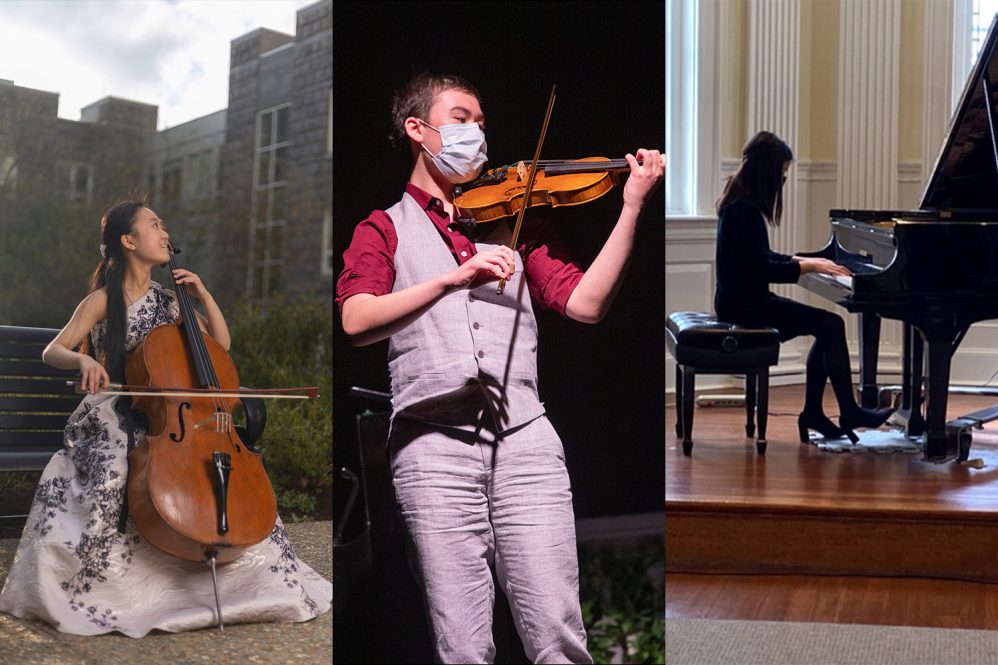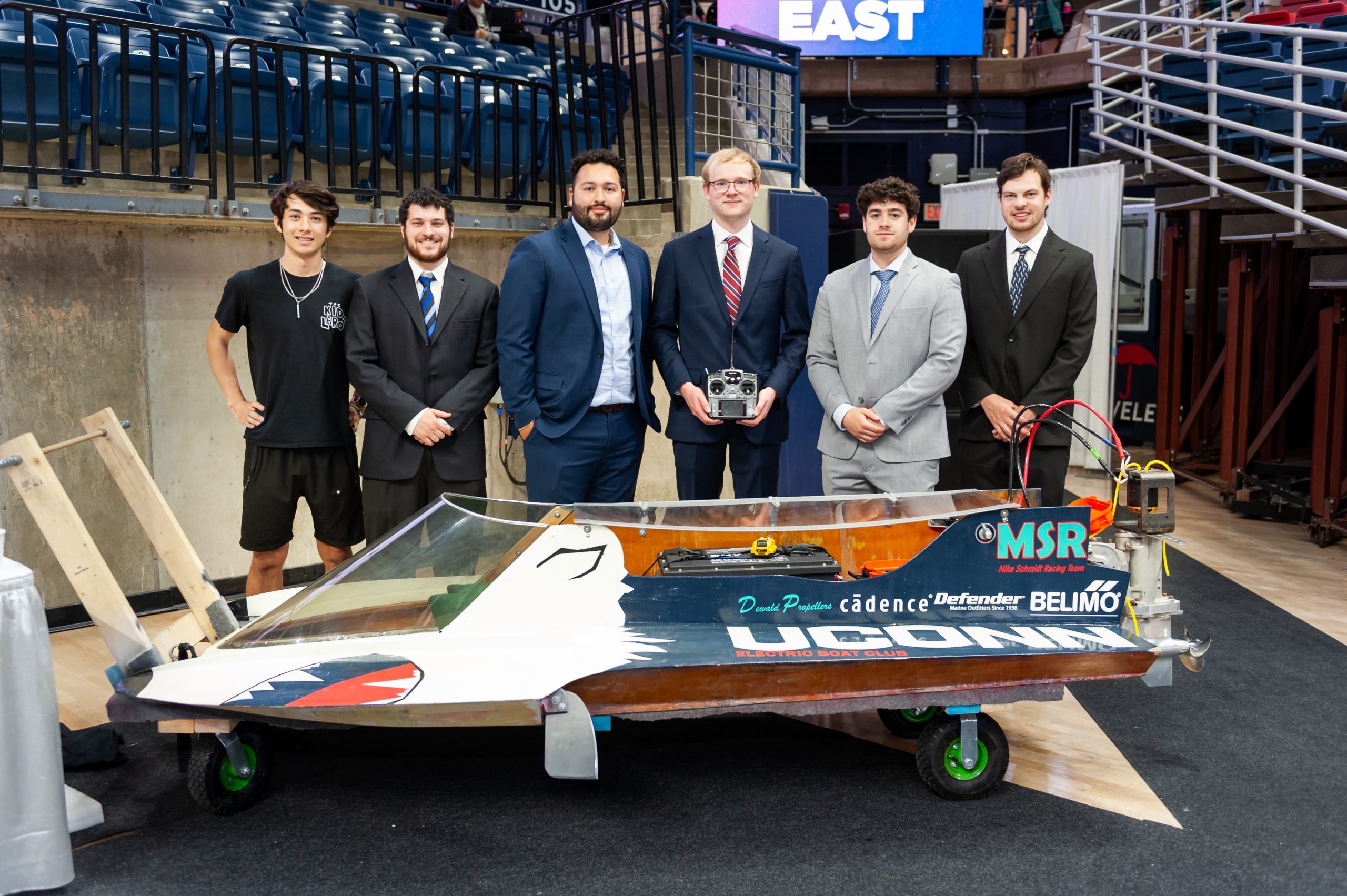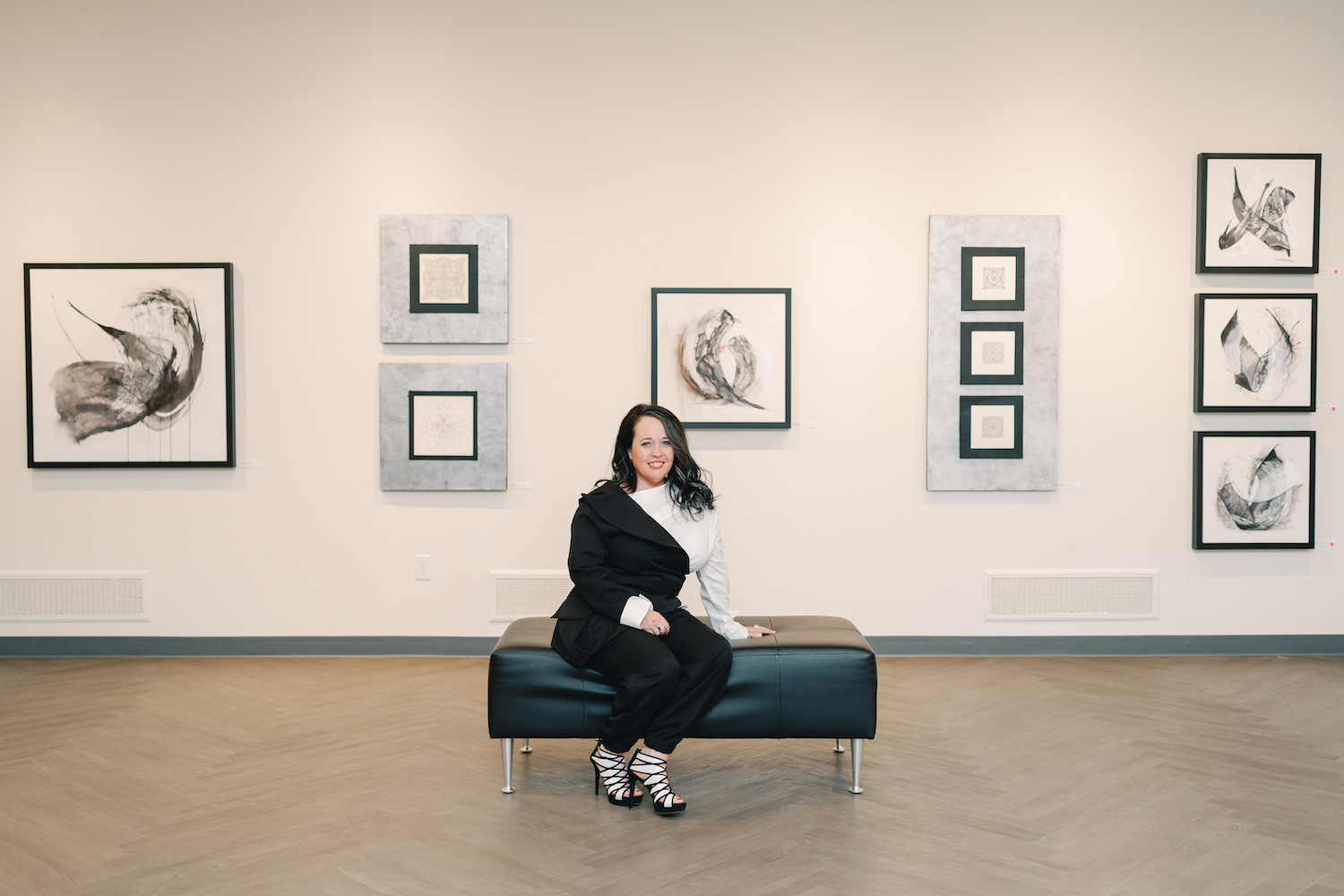Ten years ago, not only did Gracie Martin have shorter hair and the outlook on life of a seventh grader, but she’d had only general music lessons that gave her cursory experience in singing and percussion. Then she picked up a French horn and all that changed.
She wanted more than what the music department at Parish Hill Middle School in Chaplin could offer, and more than what the high school teacher could teach her. She knew she needed private music lessons to bring her into the future, yet didn’t have the more than $2,000 a year it would take.
“Since I was a little kid, I’ve been interested in music. I was always singing and dancing,” Martin ’23 (SFA) says. “My family is very musical. My father played the trombone in high school. He’s always singing and dancing, my mom is always singing and dancing. It’s just a part of life.
“But without the JOY! program, I would not have been able to go as far as I did on my horn because I was not able to afford lessons and I would have never been able to afford lessons,” she says.
At the end of her eighth-grade year, Martin learned of the JOY! Conservatory at the Jorgensen Center for Performing Arts, which offers scholarships to high schoolers seeking funds for private lessons, and eagerly applied and auditioned for selection.
“She was so sweet and positive,” remembers Jorgensen Director Rodney Rock. “We asked her, ‘If you don’t get this scholarship what will you do?’ and she said, ‘Oh, I can go out and find a part-time job that will cover the cost of lessons.’ And I was like, ‘You’re in.’”
An Early Introduction
Jorgensen Outreach for Youth started in the mid-to-late 1990s soon after Rock took the helm at the theater in 1996 and sought a way to introduce area children to the arts. At the time, he conceived a much smaller program that quite simply gave free tickets to performances to children in eastern Connecticut who’d come to the attention of social service agencies and schools.
Nearly a decade later in 2007, he wanted to expand on the idea and help high school students from disadvantaged backgrounds who were interested in music stay on par with their peers who more easily could afford instruction outside of school.
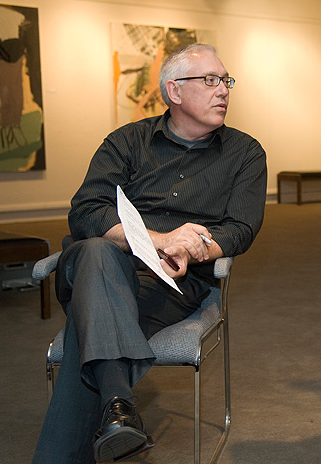
He says he noted empty spots in the 2,000-seat Jorgensen auditorium that those students and their families could fill and worked into performance contracts the possibility of providing masterclasses for area teenagers. That first year, the SBM Foundation in Manchester supported what became known as the JOY! Conservatory with an $11,000 donation for an initial pilot.
With hopes high and a plan in place, only six students applied, a disappointed Rock says, and “it was a miserable failure.”
He offered to return the remaining $5,000, but now-retired SBM Executive Director Sheila B. Flanaghan urged him to keep the money and try again the following year. Six students became eight, and then 10, and the program grew.
This year’s class has 29 students. Before the pandemic, up to 40 annual scholarships were being offered from among 80 applicants and financial support swelled; the Jeffery P. Ossen Family Foundation and the Jorgensen CoStars offered their backing. This year the program benefitted significantly from UConn Gives.
“We’re not out to discover the next Yo-Yo Ma,” Rock says. “But we’ve had some kids in the program who have gone onto the Eastman School of Music. They’ve gone onto the Curtis Institute in Philadelphia. We have one student who’s getting his doctorate at Julliard. Those are all great successes, but the one that touches my heart the most was this young lady from Chaplin.”
That’s Gracie – who was in the conservatory for the maximum four years and used her scholarship for weekly lessons with Jaime Marci at Summit Studios in Manchester. As a first-generation college student, Martin came to UConn in the School of Fine Arts and is set to graduate in December with a Bachelor of Arts in music.
“JOY! is such an amazing program for people like me. It’s completely changed my life,” she says. “I wouldn’t be a professional musician without it. I’m so thankful for it.”
Reaching for Students, Reaching for Goals
Rock says, “We initially started out targeting kids who came from a really deserving background. And what we found through the years is it’s really hard to find kids like that because oftentimes the last thing they’re thinking about is playing the piano or taking violin lessons. They’re more worried about having a roof over their head and food in their stomach and clothes on their back.”
So the focus became helping those most in need first, and secondly those who just need an extra lift for an activity that can run $2,600 to $4,100 each year per child.
A student clarinetist, for instance, would spend roughly $160 per school year on a rented instrument from a music store, or between $400 and $3,000 on the one-time purchase of a clarinet, depending on condition and material – plastic or wooden. Of course, other, bigger instruments, like a baritone horn, cost more.
Owned or rented, a clarinet needs a reed to function, and a young player needs a box every few months at $25. Then there’s $120 for the occasional tune-up if the instrument is owned, and about the same amount for repairs if a key breaks or an air leak appears.
Lessons most often run an hour and can range from $60 to $90 a week over 10 months. Teachers tell students what sheet music and books to purchase, which can cost between $15 and $30, and private lessons oftentimes lead to group ensembles that can be as expensive as $300 to join.
Music summer camps for the most avid players can be $300 for a month-long day camp to $500 for a week-long overnight camp. If they want to trade up to a professional mouthpiece, the cost could be $175.
Most JOY! students come from east of the Connecticut River – Mansfield, Tolland, Ellington, and Vernon – but high school music directors from New Hartford eastward get application notices prior to the June 1 annual deadline.
Several years ago, the program drew a student from Jewett City, who, it was later learned, was living in a car with her mom. In Willimantic, a young cellist kept saying that for fun he only practiced his instrument; he didn’t ride bikes or play basketball. When Rock had reason to visit the boy at home, he no longer was puzzled by that claim, and understood when looking at the surrounding neighborhood; it wasn’t safe to be outside.
“These are the kinds of kids we really love to have in the program,” Rock says, noting that most students aren’t in such extreme circumstances and many just need a financial boost as they advance and more is asked of them – like the twins from Manchester who played cello and violin with JOY! for four years and went on to be college music majors. “You could see over four years these girls, they both grew musically. And because they reached for something, they’re going to end up in a much better spot.”
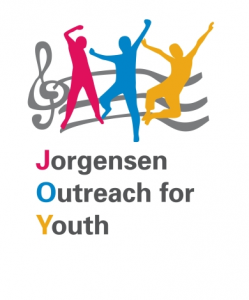
Of course, there are students like cellist Amy Goto, a Kingston, Rhode Island, teen who started playing her instrument when she was 3 and has studied at the Manhattan School of Music since she was 12. For the last two years, she’s been in France working with renowned cellist Gautier Capucon and JOY! has helped pay her bills.
She might be the outlier in talent, but “it’s good for these kids to see someone like that,” Rock says, remarking that the hire of Ryan Burns as JOY! coordinator lends the program even more credibility.
‘What would life be like without music’
Burns ’12 MM, ’17 DMA joined JOY! in 2015 when he was doing graduate work at UConn, first as a voice teacher for program participants and later in a leadership role.
“I came to work in the arts because of the people in my life, teachers and family who supported the arts not as something that was secondary, but as a vital part of who we are,” says Burns, who has quite the musical resume, having been named the National Winner of The American Prize in Vocal Performance – The Friedrich and Virginia Schorr Memorial Award in the professional opera division for 2017-18 and performing with opera companies as a baritone throughout Connecticut, Massachusetts, and Rhode Island. He’s also director of music at The Pomfret School.
“Something like music, everyone, regardless of how they’re connected to it, appreciates it,” he adds. “If we asked the question what would life be like without music or some kind of organized sound, it would be really hard for us to comprehend that. If we want that to continue, both in having artists who perform and create and those who attend shows in the audience you have to start that young. That’s why music education is so important.”
And that’s what drew him to JOY!.
Students are provided scholarships for private lessons, free tickets to Jorgensen performances, and the opportunity to sit in on masterclasses with UConn SFA faculty, Jorgensen artists, and visiting musicians from places like the University of Hartford’s Hartt School of Music. In exchange, they’re asked to think about what they’ve been learning, how it’s affected their playing, and what new goals they have for themselves in several reflection essays during the year that take inventory of the investment being made in them.
They also perform in three recitals – fall, winter, and spring – to put on display the progress they’re making. One by one they ascend the Jorgensen stage, try to find their family and friends in the audience despite the bright stage lights, swallow hard and showcase their best four minutes of music.
“When we’re performing, it’s not just the song or the selection that we’re offering,” Burns says he teaches the students during rehearsals. “The performance begins as soon as they walk out on stage. They learn how to carry themselves, how to introduce themselves, and making sure they’re not taking that for granted.”
He adds, “Some of the students say, ‘I’m nervous,’ and I tell them that if they’re nervous that means they care, and that’s never a bad thing. The more experience students have with these types of things the easier they get. There’s always something to be learned from that.”
It’s an exercise that’s been thwarted the last several years, yet another casualty of the pandemic. Recital performances were videotaped at home and submitted virtually in spring 2020 and in 2021 and were to resume in early this month until quarantine forced another in-person cancellation.
Next year, Rock and Burns say they hope to resume recitals and again offer masterclasses, which also have been waylaid. While being safe, they want to bring together students to learn from one another and collaborate musically.
Martin says she attended several masterclasses on piano and woodwinds: “It was pretty cool to see other musicians talk about their instruments. I can watch a musician play and say that was really great, but when you’re in the masterclass and watching it, you can really see people’s thought processes and almost watch their brain work.”
Burns says there’s value in stepping outside the familiar.
“I always stress this, even as a vocalist there’s something to be learned by attending an instrumental masterclass and vice versa,” he says. “This idea of appreciation is not just for the instrument that someone calls theirs, but there is opportunity for things to be learned from all types of artists.”
This means a pianist working with a tubist, an oboist working with a trumpetist, together making harmony, exchanging ideas, and loving music for music’s sake.
“Young people, and really everyone, need regular creative outlets,” Burns says. “They’re happier and healthier when they’re doing that. We recognize that not all students may go on to major in music in college, but that doesn’t make the experience of JOY! any less for them. We love it when students go on to do music, but if they don’t there’s going to be an appreciation and it’s going to be a part of who they are as adults.”
The application deadline for the 2022-23 program year has been extended to Wednesday, June 15. Students need to submit a letter of recommendation and video audition, in addition to the application form that’s filed online. Visit the JOY! Conservatory website for full instructions on how to apply.
